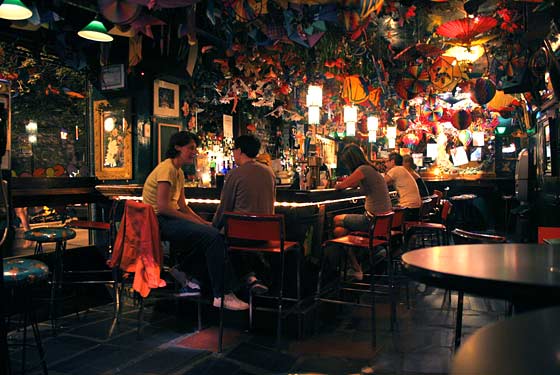
Lesbian Geographies
Avant le 22 novembre - Lisbonne
Building on two very successful sessions at the European Geographies of Sexualities II in Lisbon, we now invite abstracts for a special issue of LES Online and an edited book about Lesbian Geographies.
Scope :
It has long been recognised that the spatialisation of sexual lives is always gendered. The earliest form that this recognition took was exploring the differences of lesbian geographies from gay male foci. Steps taken more than ten years ago to make lesbian geographies and geographers more visible has contributed to the development of research that works at the interfaces of gender and sexualities. This has also sought to contest male hegemonies including in academic positions of power and how knowledge is valued and produced.
Gender issues in geographies of sexuality are often ignored or overlooked and this means that lesbian geographies are often invisiblised in geography. This is despite of the fact that lesbians are supposed to be increasingly included and accepted. Therefore, we end up in a similar situation to the broader exploration of women, whereby supposed inclusion actually silences and renders obsolete gendered differences that continue to matter.
Sexism and male dominance are a pervasive reality and lesbian issues are rarely afforded the same prominence as gay issues. Thus, lesbian geographies continue to be a salient axis of difference, challenging the conflation of lesbians and gay men, as well as the trope that homonormativity affects lesbians and gay men in the same ways.
This call seeks papers that explore lesbian geographies in diverse geographical, social and cultural contexts. These papers can take a wide range of methodological, theoretical and empirical focuses. They can also take a broad interpretation and conceptualisation of ’lesbian’. They may even argue against the use of this sign and in this way address lesbian geographies. Papers not presented at the conference are welcome.
Timelines :
1. Abstracts should be submitted to Kath Browne (K.a.browne@brighton.ac.uk) and Eduarda Ferreira (e.ferreira@fcsh.unl.pt) by the 22nd November 2013
2. Paper submission by 10th January 2013, to be reviewed by Eduarda Ferreira and Kath Browne
3. Revised papers/chapters submitted 21st March
Fichiers de syndication :
Statistiques :
Le site contient 4383 articles
